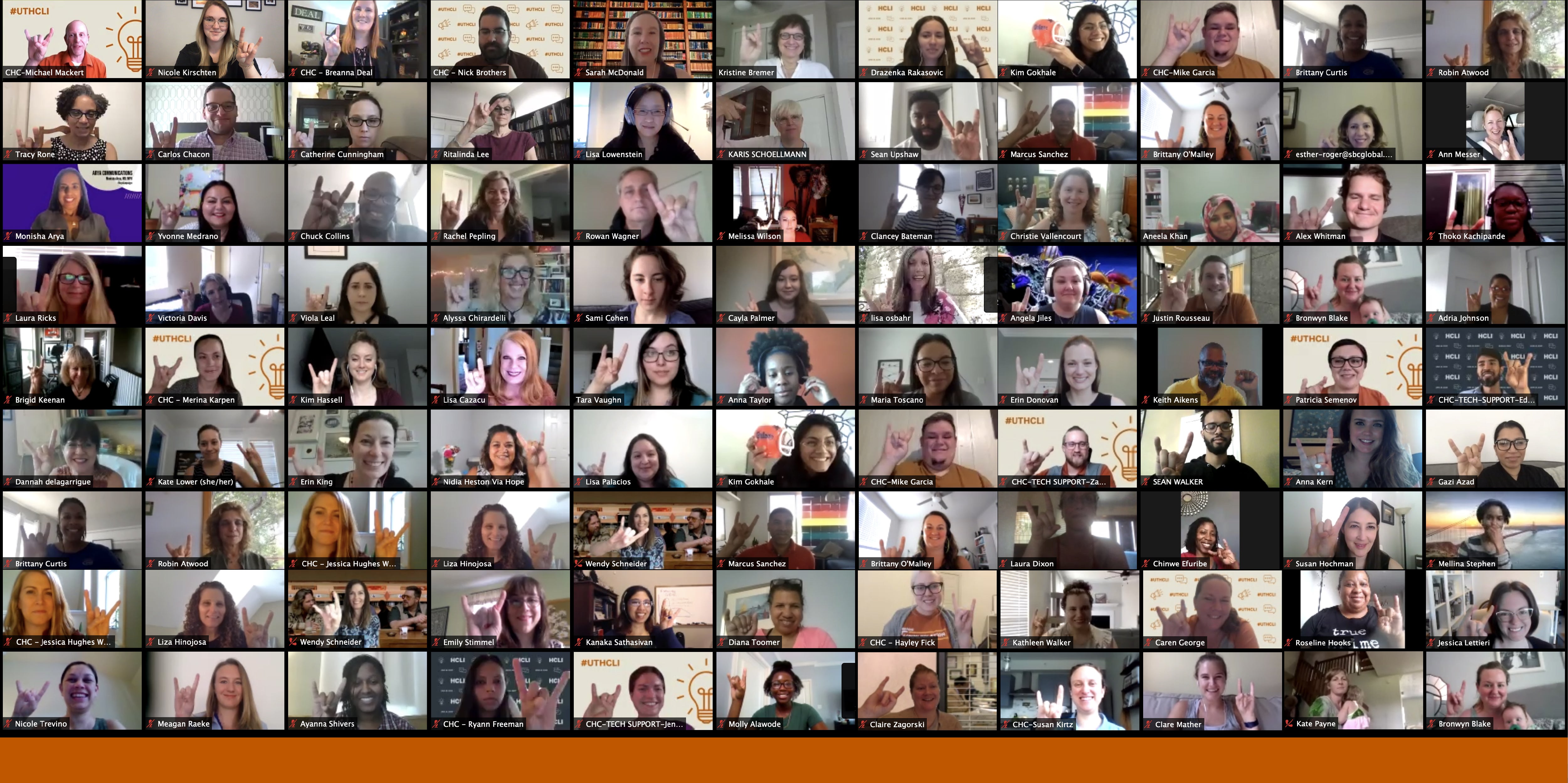Conferencing in a Pandemic: Highlights from the 6th Annual Health Communication Leadership Institute
By Nick Brothers
The challenges of 2020 continue to highlight the need for practical, capable leaders in health communication. As CHC founding director Jay Bernhardt said in his opening remarks at the sixth annual Health Communication leadership Institute, the U.S. faces three simultaneous public health emergies: a global pandemic, an economic depression, and the systemic oppression and violence people of color face.
Hosting a conference during the spread of COVID-19 posed unique challenges. With the determination of our staff this year, we were able to pivot from the usual three-day event on campus into one six-hour virtual conference. And you know what? We had fun doing it.
Going digital had its upsides. We were able to nearly double our attendance and host 120 peoplel from across the country, many who were firsts-timers. By creating digital breakout rooms, we were able to make space for networking and discussion between peers from organizations such as CDC, Veterans Affairs, Association of American Cancer Institutes, National Association of Community Health Centers, MD Anderson Cancer Center, Texas Medical Association, and more.
HCLI veterans Shana Merlin and Dr. Robert Milman got creative leading our traditional improv warm-up activity. It was a clever idea - if you can answer yes to this question, leave your video on. If not, turn off your video. Throughout the exercise, the duo demonstrated that finding commonalities to establish "instant relationships" with your audience is the foundation of building effective messaging, and having a growth mindset is key to allowing yourself to fail and learn.
This year brought many bright minds and thinkers to share their insights in health communication and leadership, and the variety of speakers proved especially valuable. Check out our Twitter feed (@uthealthcomm) to see how HCLI 2020 unfolded and some of our favorite quotes from our speakers.
Some session highlights:
- HCLI alumna Dr. Brenda Berkelaar returned to lead the group through personalized results from the Leadership Practices Inventory, offering wisdowm about growth and affective change at all levels.
- A special alumni breakout session from Leslie Wingo of Sanders/Wingo agency brought a fruitful discussion on how COVID-19 and the social movements of today have changed the advertising industry and the role diversity plays in recruiting and building teams.
- CHC-affiliate and UT Assistant Professor Deena Kemp brought an illumniating lecture about emotional responses in health communication, sharing her research on the effectiveness of emotions, such as disgust, in campaign visuals and messaging.
- Meg Poag "blew minds" (according to the group chat) with her talk on responsible leadership and how trust is given freely, but comes with a constant series of deposits and withdrawals.
- "We have a data tsunami," said JoAnn Sciarrino in the middle of her session on the importance of data analytics. She made the point that seeking human narratives in data and leveraging them in campaigns creates better messages that connect with your audience.
- Crowdsourcing visuals isn't just smart from an enggaement angle; it can take your campaigns and research to a whole new level. UT Assistant Professor Sean Upshaw spoke to the merits of involving your audience to support your visual concepts.
- Our keynote speaker, Elizabeth Teisberg, spoke about high-value health care and the pervasiveness of helath disparity issues. She answered questions about the impacts of communication at all levels - from public campaigns to provider/patient interactions. Many off the questions from the audience sought new methods to approach health disparities in their work and how to maintain trust between health institutions and the public.
Every year, we ask attendees what they are the most important elements of a health communication leader. According to our attendees, it's a job that requires empathy, an excellent ability to listen, curiosity, willingness to learn, adaptability, creativity, cultural competence, and humility. With so much asked of health communicators, it takes a real aptitude to take risks and approach problems from all angels while including your stakeholders and community. Meg Poag probably said it best, "You chose to be a leader, which means you chose to be responsible for other people's success."
If you attended HCLI this year, thanks for joining us. We'd love to see you bring what you learned to your work and your organization, and tell your colleagues about your experience. Time and again, word of mouth is one of the best ways for health communication professionals to find out about us.
To stay in touch with the Center for Health Communication and stay posted about future HCLIs, sign up for our mailing list.



